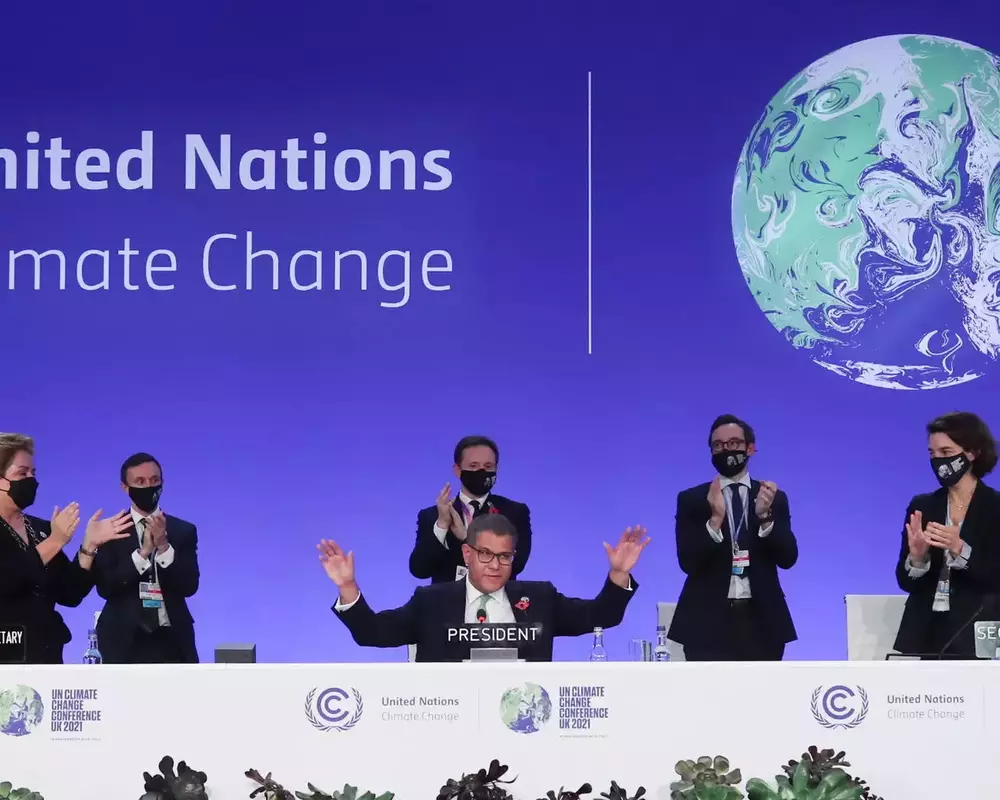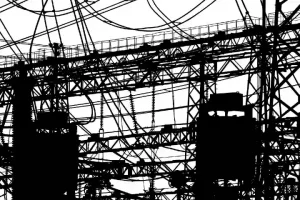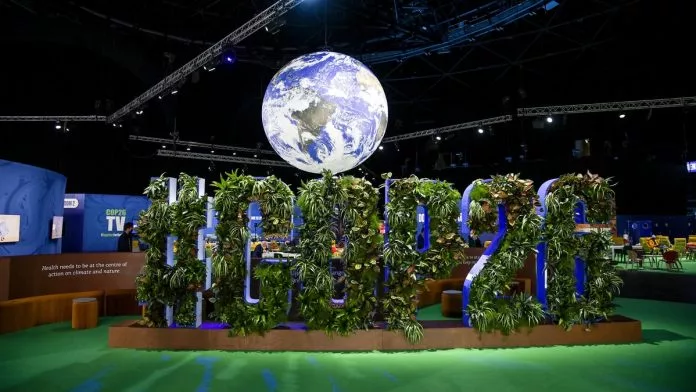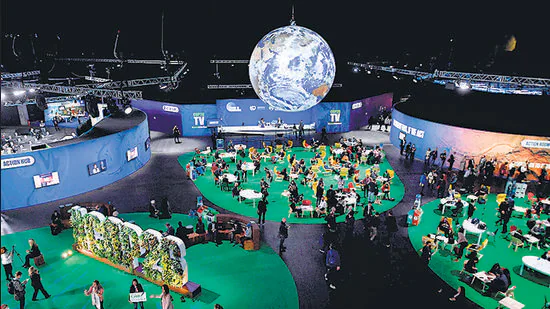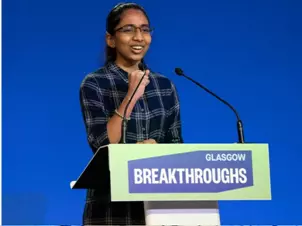The Glasgow climate pact was adopted late on Saturday by 200 countries pledging to limit global warming to 1.5 degrees Celsius in accordance with the Paris agreement and India getting its way on changing the clause on “phasing out” coal to “phasing down” coal in the final draft.
All the countries have agreed to return to the negotiating table next year, at a conference in Egypt, after re-examining their national plans to see if bigger cuts in emissions can be made.
The negotiations carried on late into Saturday evening, as there were sharp differences over provisions on phasing out coal, cutting greenhouse gas emissions and providing funds to the poor countries.
India's environment and climate minister, Bhupender Yadav, had in a last-minute intervention at the COP26 discussion disagreed with the language on fossil fuel subsidies, saying the draft lacked balance.
"Mr President, thank you for your efforts to build consensus," he told Britain's COP26 president, Alok Sharma, at a stocktaking plenary. "I am afraid, however, the consensus remained elusive.”
Yadav made it clear that developing nations had the right to use the remainder of the so-called global "carbon budget", or the amount of carbon dioxide the world can release before warming crosses the 1.5 degree Celsius threshold.
"In such a situation, how can anyone expect that developing countries can make promises about phasing out coal and fossil fuel subsidies when developing countries have to still deal with their development agendas and poverty eradication?"
Also read: India wants clause on finance support to developing countries included in COP26 final draft
The envoys of the United States and European Union then held a separate meeting with their Chinese and Indian counterparts after which the language on “phasing out” coal was changed to “phasing down” which provides for a more gradual approach on the issue.
COP26 also resolved several outstanding technical issues that had prevented aspects of the 2015 Paris climate agreement from coming into operation. These issues, on carbon trading and the “transparency” with which countries monitor and report their emissions, had defied a solution in the annual climate meetings for six years but compromises were finally reached in Glasgow.
Alok Sharma, the UK cabinet minister who presided over the fortnight-long COP26 talks in Glasgow in his final remarks said: “Before this conference, the world asked: do the parties here in Glasgow have the courage to rise to the scale of the challenge? We have responded. History has been made here in Glasgow.”
However, he acknowledged the scale of the task remaining: “We can now say with credibility that we have kept 1.5C alive. But, its pulse is weak and it will only survive if we keep our promises and translate commitments into rapid action.
António Guterres, the UN secretary-general, also warned that further urgent work was needed: “Our fragile planet is hanging by a thread. We are still knocking on the door of climate catastrophe. It is time to go into emergency mode – or our chance of reaching net zero emissions will itself be zero.”
The return to negotiations next year, to begin an annual process of revising national targets on greenhouse gases, will have its set of problems, as some countries contend that they are already doing the best they can.
Poor countries were also left frustrated at the pact, which they said did not address their concerns about “loss and damage” caused by extreme weather due to climate change.






